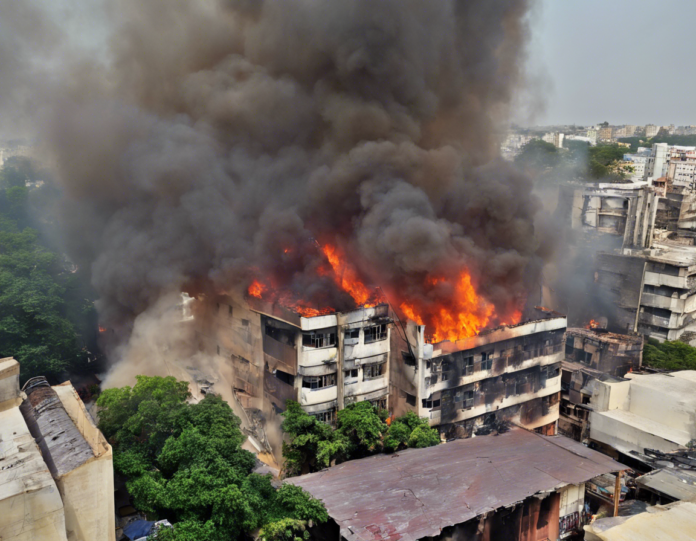On the fateful day of April 18, 2021, the bustling locality of Habsiguda in Hyderabad, India, was struck by a devastating fire incident that sent shockwaves through the community. The incident, which occurred at a commercial establishment, resulted in major losses and raised serious concerns about safety measures and emergency response protocols. In this article, we delve into the details of the Habsiguda fire incident, its aftermath, and the broader implications it carries.
The Habsiguda Fire Incident: A Tragic Turn of Events
The fire broke out in a commercial building located in the heart of Habsiguda, engulfing multiple shops and causing widespread destruction. The blaze spread rapidly, fueled by combustible materials and inadequate fire suppression systems. Panicked shop owners and customers scrambled to safety as thick smoke billowed into the sky, transforming the bustling market into a scene of chaos and despair.
Factors Contributing to the Fire Outbreak
-
Lack of Fire Safety Measures: Initial reports suggested that the building lacked proper fire safety mechanisms, such as fire alarms, extinguishers, and emergency exits.
-
Non-Compliance with Building Codes: Allegations were made regarding the non-compliance of the building with safety regulations and standards, potentially exacerbating the impact of the fire.
-
Delayed Emergency Response: Witnesses claimed that the arrival of firefighting units was delayed, hampering efforts to contain the blaze in its early stages.
Immediate Response and Rescue Operations
Local authorities swiftly mobilized firefighting teams to the site, deploying resources to extinguish the inferno and conduct search and rescue operations. Despite the challenges posed by dense smoke and intense heat, emergency responders worked tirelessly to evacuate trapped individuals and prevent the fire from spreading further.
Impact on the Community and Businesses
The Habsiguda fire incident left a deep impact on the local community and businesses, many of which suffered significant losses in terms of property and livelihoods. The incident underscored the vulnerability of small businesses to such disasters and raised questions about the need for robust safety protocols and risk mitigation strategies.
Lessons Learned and Future Preparedness
-
Enhanced Safety Inspections: Authorities have emphasized the need for stringent safety inspections of commercial buildings to ensure compliance with fire safety regulations.
-
Public Awareness Campaigns: Public education campaigns on fire safety and emergency response protocols are crucial to empowering individuals and businesses to effectively deal with such incidents.
-
Improved Infrastructure: Investments in upgrading fire suppression systems, building infrastructure, and emergency response capabilities are essential to enhancing community resilience.
FAQs: Understanding the Habsiguda Fire Incident
- Q: What caused the fire in Habsiguda?
-
A: The exact cause of the fire is under investigation, but factors like electrical faults or flammable materials are often common culprits in such incidents.
-
Q: Were there any casualties in the fire incident?
-
A: Fortunately, there were no reported casualties, but several individuals suffered from smoke inhalation and minor injuries.
-
Q: How can businesses prevent such incidents in the future?
-
A: Implementing proper fire safety measures, conducting regular drills, and ensuring compliance with building codes are crucial for preventing fire outbreaks.
-
Q: What role can the community play in enhancing fire safety?
-
A: Community members can raise awareness about fire safety, report potential hazards, and support local emergency responders in their preparedness efforts.
-
Q: Is there any support available for businesses affected by the fire?
- A: Authorities and NGOs often provide support programs for affected businesses, including financial assistance and guidance on rebuilding efforts.
As the wounds of the Habsiguda fire incident slowly heal, the community and authorities must collectively strive to learn from this tragedy and fortify their resolve to prevent such disasters in the future. Through a combination of proactive safety measures, public awareness, and collaborative efforts, Habsiguda can emerge stronger and more resilient, turning this dark chapter into a catalyst for positive change.






